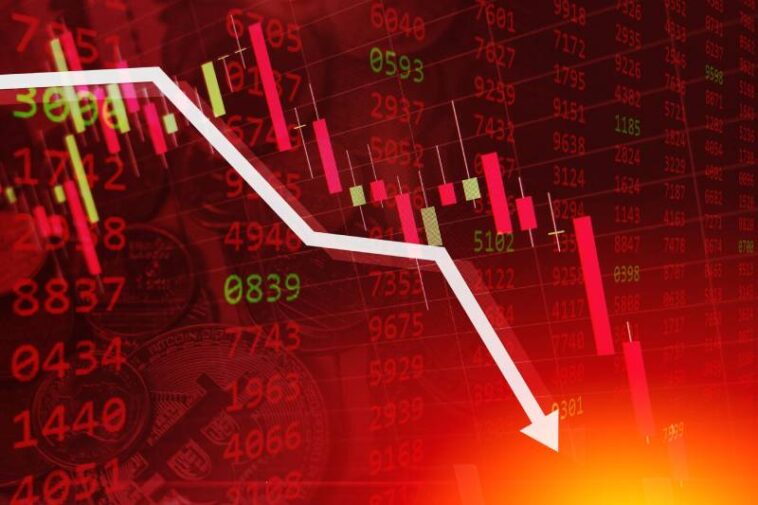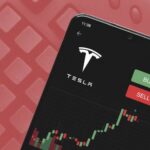
TSLA stock is dropping a bit and there are a few reasons why. TSLA is a clean energy company that manufactures a variety of products such as solar panels, solar roof tiles, home energy storage, and battery energy storage. In addition to this, Tesla also designs electric vehicles and related products.
TSLA stock has dropped by 11% since Monday’s Twitter acquisition
TSLA stock has lost 11% in the past week following the Twitter deal, erasing nearly $75 billion in market value. Investors are still weighing the Twitter deal, and it could keep weighing on the stock until the deal is complete.
Elon Musk’s decision to buy Twitter is not without controversy. He said he would put up half of the $44 billion purchase price himself. But it’s unclear if he has the money or not. Musk has also fought a lawsuit from Twitter to force him to buy the social media company.
While the deal may not have been smooth, it has come together quickly. Musk is likely to make a large profit from Twitter. But the takeover will also add billions of dollars in debt to the company’s balance sheet. In the company’s most recent quarterly earnings report, Twitter reported a loss of $344 million. This prompted several companies to stop advertising on the platform.
Musk’s decision to buy Twitter may have been motivated by a desire to keep a close eye on the company, but it’s not a simple move. The CEO is likely to sell some of his Tesla shares to help finance the deal. However, Musk may also opt to borrow against his shares instead. This could mean he would have to throw in more of his own money, causing the stock to drop even more.
The Twitter deal is only part of a broader trend of investor worries about the economy. Rising interest rates and inflation have also sparked investor jitters. A rash of hot technology stocks have also tumbled.
Tesla shares are down more than a quarter of their value this year. The broader market has fallen 12% through the end of March.
Elon Musk sold more than $8 billion to help cover the cost of the $44 billion acquisition
Despite announcing that he would never sell his Tesla shares, CEO Elon Musk has made several billion-dollar sales of the company’s stock over the past year. He sold 19.5 million shares in a transaction in November. He sold another 19.5 million shares in August. And he is planning to sell another 19.5 million shares in November and December.
As part of his deal, Musk secured $13 billion in debt financing from Bank of America and Morgan Stanley. The debt was secured against Musk’s remaining stake in Tesla.
Musk also secured a margin loan for $6.25 billion, which is backed by the Tesla stock he pledged. He also secured financing from Binance, Sequoia Capital and Larry Ellison.
According to Lux Capital, which calculates Musk’s take on liquidated Tesla stock, he would have taken home a $7 billion profit. That would be the largest breakup fee of any technology company’s transaction, according to Lux.
The deal has been met with criticism. A Bloomberg report cited concerns about Musk’s stance on Russia. But it has also gotten a lot of support from Republicans. Some Republicans have argued that Twitter has censored conservative viewpoints. In addition, many advertisers have been wary of appearing alongside controversial tweets.
Elon Musk has also promised sweeping changes at Twitter. He plans to turn the social media company into an “everything app.” He has said he plans to increase annual earnings to $26.4 billion. He also plans to quintuple Twitter’s revenue by 2028.
The company has struggled to attract new users and advertisers. It is now estimated that advertising accounts for 91% of Twitter’s revenue. In addition, Twitter has been criticized for its rules against hate speech.
Tesla’s supply chain disruptions
Despite its robust EV sales growth, Tesla is facing supply chain disruptions that are weighing on its shares. The company reported that it has lost 22 days of production in Shanghai during the second quarter. This was the third time that the automaker has experienced a production disruption.
It was also revealed that the company lost more than 400 workers in China. Despite the losses, Tesla delivered 254,695 vehicles in the second quarter. This figure is the highest in the company’s history.
Tesla CEO Elon Musk said the company was taking steps to address the issue. He claimed that his company has a superior supply chain to its competitors. He also claimed that his company was able to maintain its pricing advantage. But the company is also burning cash at an alarming rate, spending $400,000 per hour.
According to a report released by Interos, the automotive industry has 203,500 Tier-3 suppliers. These suppliers are the suppliers that Tesla and other automakers use to make their vehicles.
The auto industry expects that the supply of key battery materials will continue to be strained in the near-term. This will likely translate to a $61 billion revenue shortfall for automakers. The cost of these materials has also increased because of shipping delays at the ports in southern California.
A global semiconductor shortage has also impacted automakers. The company has retooled its software to use existing chips. In addition, Tesla has taken steps to improve its procurement of lithium.
Ultimately, the company said its performance will tell a story in the second half of the year. The company will need to report better than expected revenues and profits.
People heavily shorted Tesla
Throughout the years, Tesla has had a reputation for being heavily shorted. However, the number of people who are shorting the company is much lower than the number of people who are long. The average length of a short position is just over a month, and the majority of the short positions are centered around an arbitrage opportunity.
At the start of January, short interest in Tesla stood at 29.5 million shares. However, after strong earnings, shares soared by more than 10 percent. That caused short sellers to lose billions of dollars. However, since then, the short interest has declined, and the amount of money shorted against Tesla has fallen by over $11.1 billion.
Currently, short interest in Tesla is only slightly below its peak, but there is little evidence that sentiment is shifting in the direction of short selling. The data cited by Business Insider was provided by data provider Ortex.
Short interest in Tesla represents about 2% of the total number of shares on the market. The percentage of short interest is slightly below its peak, but short sellers still scramble to cover their positions. The short interest in Tesla is almost as large as the short interest in Amazon and Microsoft combined.
Short sellers have lost $2.6 billion in the first two weeks of 2020. According to the financial technology and analytics firm S3 Partners, they have lost about $1 billion this week.
Elon Musk has said that short sellers are jerks who want to see the company fail. However, he has also said that there are significant bets against the firm. However, if people stop believing that story, then the stock could tank.
Future economy will play a role in TSLA’s stock price stability
TSLA has been on a tear lately, but that doesn’t mean it is going to be a one horse horse in the long run. The company has been battling legal and supply chain issues as well as the specter of a competitor’s best foot forward. While its market share is waning, it is still a big fish in a small pond. This may not be such a bad thing after all, as the company is on track to join the S&P 500 by the end of the year.
For starters, the company has been laying the groundwork for a new factory in Germany. That’s certainly a big ask for a small town like Elkhart, but a new factory would boost its profile in the eyes of the German car manufacturers. The company also has plans to invest in new manufacturing technologies to produce cars of the future. These plans could be derailed by a legal challenge to the company’s newfound forays into the German automotive industry.
Of course, the company is not immune to the challenges posed by the current political state of affairs. As a result, the scalability of its manufacturing capabilities is in question. For instance, if the company is to produce vehicles in Germany, it will have to find ways to satisfy the country’s burgeoning car needs.



